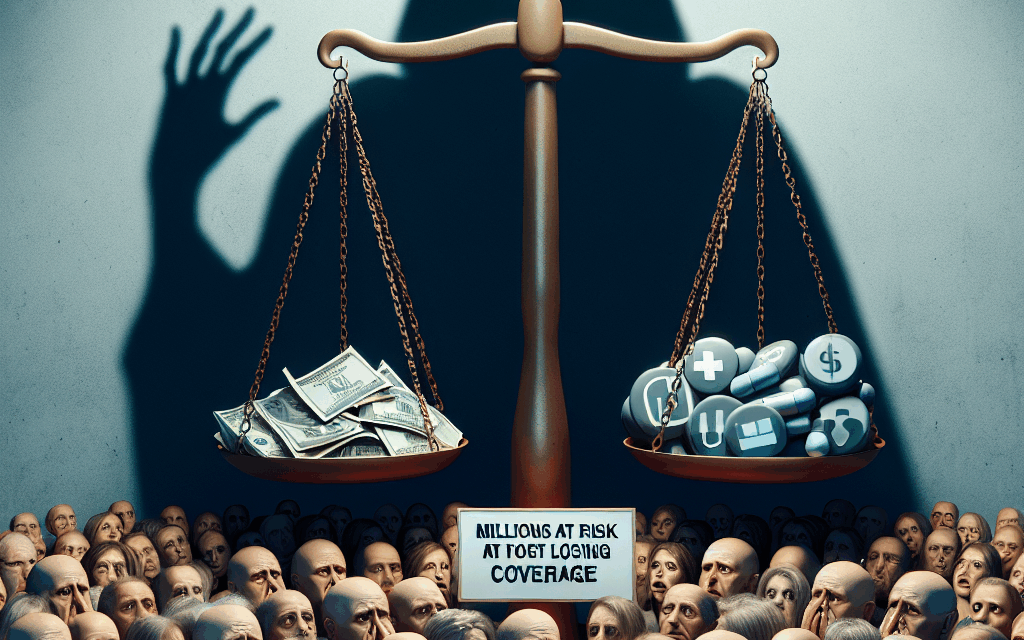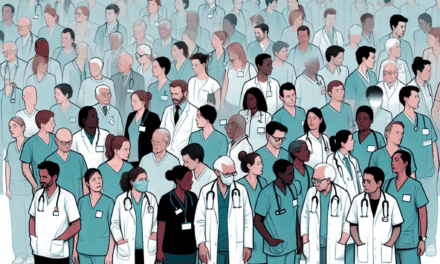Millions at Risk of Losing Coverage Due to Proposed GOP Medicaid Policies: CBO
The landscape of healthcare in the United States is ever-evolving, with policies and regulations frequently changing. One of the most significant programs affecting millions of Americans is Medicaid, a joint federal and state program that provides health coverage to low-income individuals and families. Recently, the Congressional Budget Office (CBO) has raised alarms about proposed GOP Medicaid policies that could jeopardize coverage for millions. This article delves into the implications of these proposed changes, exploring the potential impact on vulnerable populations, the economic ramifications, and the broader healthcare system.
Understanding Medicaid: A Lifeline for Millions
Medicaid serves as a critical safety net for low-income individuals, including children, pregnant women, elderly individuals, and people with disabilities. Established in 1965, the program has evolved to cover a diverse range of services, from routine check-ups to long-term care. As of 2023, Medicaid covers over 80 million Americans, making it one of the largest health insurance programs in the country.
Key features of Medicaid include:
- Eligibility: Medicaid eligibility varies by state, but generally, it covers individuals and families with incomes below a certain threshold, often set at 138% of the federal poverty level.
- Comprehensive Coverage: Medicaid provides a wide array of services, including hospital visits, preventive care, mental health services, and long-term care.
- State Flexibility: States have the flexibility to design their Medicaid programs, which can lead to variations in coverage and benefits across the country.
Despite its importance, Medicaid faces ongoing scrutiny and proposed changes that could significantly alter its structure. The GOP’s proposed policies aim to reduce federal spending on Medicaid, which could lead to cuts in coverage and benefits for millions of Americans.
The Proposed GOP Medicaid Policies: An Overview
The GOP has long advocated for reforms to Medicaid, arguing that the program is unsustainable and needs to be restructured. Recent proposals have included measures such as block grants, work requirements, and stricter eligibility criteria. These changes are intended to reduce federal expenditures but could have dire consequences for those who rely on Medicaid for their healthcare needs.
Key components of the proposed policies include:
- Block Grants: This approach would provide states with a fixed amount of federal funding for Medicaid, limiting the federal government’s financial responsibility and potentially leading to reduced services.
- Work Requirements: Some proposals suggest implementing work requirements for Medicaid recipients, which could disqualify individuals who are unable to work due to various reasons, including caregiving responsibilities or health issues.
- Eligibility Restrictions: Stricter eligibility criteria could be introduced, making it more challenging for low-income individuals to qualify for Medicaid coverage.
These proposed changes have sparked significant debate among policymakers, healthcare advocates, and the public. Proponents argue that they will encourage personal responsibility and reduce government spending, while opponents warn that they will lead to millions losing coverage and increased healthcare costs for those who remain insured.
The Impact on Vulnerable Populations
One of the most concerning aspects of the proposed GOP Medicaid policies is their potential impact on vulnerable populations. Medicaid serves as a lifeline for many individuals who face significant barriers to accessing healthcare. The proposed changes could exacerbate existing inequalities and leave millions without essential services.
Vulnerable populations affected by these changes include:
- Low-Income Families: Many families rely on Medicaid to cover basic healthcare needs. Stricter eligibility requirements could push them out of the program, leaving them without affordable options.
- Children: Medicaid covers millions of children, providing them with necessary preventive care and treatment. Losing coverage could have long-term consequences for their health and development.
- Individuals with Disabilities: Many people with disabilities depend on Medicaid for long-term care and support services. Proposed cuts could jeopardize their ability to live independently.
Case studies illustrate the potential fallout from these proposed policies. For instance, a family of four living at the poverty line may currently qualify for Medicaid. If eligibility criteria are tightened, they could lose coverage, forcing them to seek care in emergency rooms, which is more expensive and less effective than preventive care.
Moreover, the impact on children is particularly alarming. Research shows that children with Medicaid coverage are more likely to receive timely vaccinations and regular check-ups, which are crucial for their long-term health. Losing this coverage could lead to increased rates of preventable diseases and long-term health issues.
The Economic Ramifications of Coverage Loss
The proposed GOP Medicaid policies not only threaten individual health outcomes but also have broader economic implications. Medicaid is a significant driver of economic activity in many states, providing jobs and supporting local healthcare systems. Reducing coverage could lead to job losses and increased costs for states and local governments.
Key economic ramifications include:
- Job Losses in Healthcare: Medicaid funding supports a vast network of healthcare providers, including hospitals, clinics, and nursing homes. Cuts to Medicaid could lead to layoffs and reduced services, impacting local economies.
- Increased Uncompensated Care: If millions lose Medicaid coverage, hospitals may face a surge in uncompensated care costs as uninsured individuals seek emergency treatment. This could lead to higher healthcare costs for everyone.
- State Budget Strain: States that rely heavily on Medicaid funding may face budget shortfalls if federal support is reduced. This could lead to cuts in other essential services, such as education and public safety.
For example, a study by the Kaiser Family Foundation found that states that expanded Medicaid under the Affordable Care Act saw significant economic benefits, including job creation and increased revenue. Conversely, states that have not expanded Medicaid may face greater economic challenges if proposed cuts are implemented.
The Broader Healthcare System: A Ripple Effect
The proposed GOP Medicaid policies could have a ripple effect throughout the broader healthcare system. As millions lose coverage, the strain on other parts of the healthcare system will likely increase, leading to a host of challenges for providers and patients alike.
Potential ripple effects include:
- Increased Emergency Room Visits: Without access to preventive care, many individuals may turn to emergency rooms for treatment, leading to overcrowding and longer wait times.
- Higher Insurance Premiums: As more individuals become uninsured, the cost of care may shift to those who remain insured, resulting in higher premiums and out-of-pocket costs.
- Public Health Risks: A decline in Medicaid coverage could lead to increased rates of communicable diseases, as individuals may forgo vaccinations and preventive care.
Case studies from states that have implemented similar policies provide insight into these potential outcomes. For instance, in states that have enacted work requirements for Medicaid, studies have shown an increase in emergency room visits and a decline in overall health outcomes among low-income populations.
Conclusion: The Urgent Need for Thoughtful Policy Decisions
The proposed GOP Medicaid policies present a significant risk to millions of Americans who rely on this essential program for their healthcare needs. As the CBO has indicated, the potential loss of coverage could have dire consequences for vulnerable populations, the economy, and the broader healthcare system.
It is crucial for policymakers to consider the long-term implications of these proposed changes. While the goal of reducing federal spending is understandable, it should not come at the expense of the health and well-being of millions of Americans. Thoughtful, evidence-based policy decisions are needed to ensure that Medicaid continues to serve as a vital safety net for those who need it most.
In summary, the proposed GOP Medicaid policies could lead to:
- Loss of coverage for millions of low-income individuals and families.
- Increased economic strain on healthcare systems and state budgets.
- Negative health outcomes for vulnerable populations, including children and individuals with disabilities.
- Broader implications for the healthcare system, including increased emergency room visits and higher insurance premiums.
As the debate continues, it is essential for stakeholders to engage in meaningful discussions about the future of Medicaid and the best ways to ensure access to quality healthcare for all Americans.





